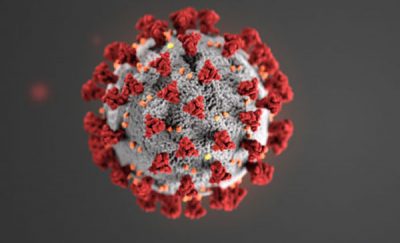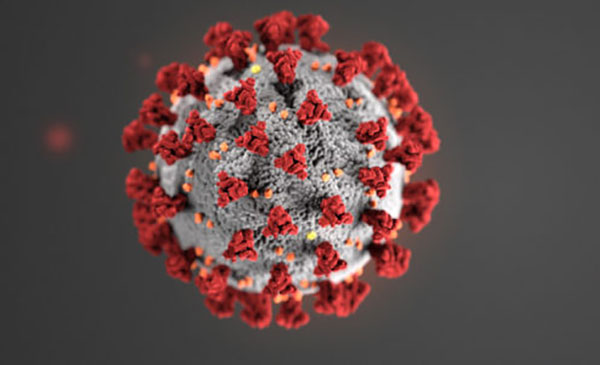This is a weekly Q and A column written by Dr. Lydia S. Segal in conjunction with Chaffee County Public Health. This column is focused on questions readers have about COVID-19 news and sciences. As Segal points out, ‘Everything I write today is valid for today. COVID-19 news and science are rapidly evolving, assume updates will be made”.
 I have gotten a number of questions about vaccine hesitancy in the last month, ever since I last wrote about people who are either resistant, hesitant or just postponing their vaccines. As we have all read and heard by now, there are sufficient vaccine supplies in the county, state, and country that getting an appointment for a vaccine is not an issue.
I have gotten a number of questions about vaccine hesitancy in the last month, ever since I last wrote about people who are either resistant, hesitant or just postponing their vaccines. As we have all read and heard by now, there are sufficient vaccine supplies in the county, state, and country that getting an appointment for a vaccine is not an issue.
In fact, the county has discontinued its mass vaccination clinics at the fairgrounds because not enough people were signing up. Vaccines are still available at local pharmacies and some medical facilities. For more info see the list at the end of this article or contact your doctor’s office.
QUESTION: I heard the J & J vaccine was released again for use last week. Why should I consider it a worthwhile vaccine to get when the government stopped its availability?
ANSWER: The J & J was pulled for review because there was found to be a 1 in a million chance of developing a rare complication of both bleeding and clotting in women between the ages of 18 and 50. The CDC and FDA were doing exactly what they are tasked to do; oversee any possible negatives to the vaccines. After they reviewed all the data, they determined that the benefit still outweighs the risk. The J & J was re-released with a warning about the rare blood risk. For those people who are still hesitant to take this one-shot only vaccine, there are two others, Pfizer and Moderna, that are available in the county and state. Both Pfizer and Moderna, which are a two-shot series, referred to as mRNA vaccines, have not shown this very rare side effect.
QUESTION: I am 30 years old and healthy. My husband and I got COVID a few months ago. We had a mild case and recovered at home in a few days. Why should we get the vaccine?
ANSWER: It turns out that you have immunity for three to six months and possibly longer. However, the question is how strong is your immunity? A new study shows that the immunity from having had COVID-19, whether a mild or severe case, is not as robust as having been vaccinated. The vaccines produce antibodies that fight a variety of places on the spike protein whereas the antibodies produced from having COVID only produce one type of antibody.
QUESTION: My brother, whom I referenced in an earlier Q & A, still believes that the vaccines were produced too quickly. How do I allay his fears?
ANSWER: Although I have shared data with him that the vaccines were produced on technology that is more than ten years old, he does not appear to be hearing me. I have also referred him to the CDC web pages on risks and known side effects, and he still is sitting on the sidelines.
At this point, there is little any of us can do to convince him otherwise. The data does not seem to make a difference. And telling him about people who have gotten bad cases of COVID or died in his age group seems to make a short-term impact, but still no vaccination appointment. Sometimes you have to know when you can’t convince someone. I have informed him he will not be coming inside my home unless he is masked and socially distanced, etc.
QUESTION: A neighbor was recently placed on steroid medications for a new medical condition. This makes him immunosuppressed. His questions are: how to find out if he made enough COVID fighting antibodies from his vaccination? In addition, his family is coming to visit for Memorial Day weekend and they are hesitating getting vaccinated for a number of different reasons. What should he say to convince them to get vaccinated before the holiday so he is protected?
ANSWER: The first question does not have a clear answer. Though you can get tested to see if you made any antibodies to COVID from the vaccine, it is still not known how many antibodies you need for an adequate immune response.
The second question comes down to letting his family know that their loved one is medically endangered. And if they love him, they will get immunized. They do have enough time to get either the single or two-shot series before the holiday. If they choose not to get vaccinated, then everyone will need to mask up when inside. They need to keep a distance both inside and outside. And no hugging their immunocompromised relative.
QUESTION: I have a 65 year old neighbor, who believes in vaccines in general yet questions why she needs to get vaccinated because she wears her mask, social distances, washes her hands and is in general very careful when she is out and about. She says that if she thinks she might have been exposed, she will get tested and so far all her tests have been negative. What do I say to her?
ANSWER: The crux of the matter is the fallacy of getting tested if she thinks she might have been exposed. At that point, it is too late. She doesn’t know who she might have been in contact with who might be an asymptomatic or mild carrier. Given her age, she is more likely to have a severe case should she get COVID-19.
For more information about COVID and the vaccines, eligibility and appointments, see the links below. Pharmacies are getting small shipments of vaccines. Information will be posted in this news source and on the county public health and hospital web pages.
http://chaffeecounty.org/Public-Health-Coronavirus
https://www.hrrmc.com/covid-19-updates/covid-19-vaccine/
Pharmacies with vaccine clinics:
Buena Vista: Buena Vista Drug, Valley-Wide Health, LaGree’s Pharmacy
Salida: Safeway and Salida Pharmacy
By Lydia S, Segal, M.D., MPH
NOTE: If you have questions you would like Dr. Segal to address in a future COVID Q and A column, please write to arkvalleyvoice@gmail.com







Recent Comments